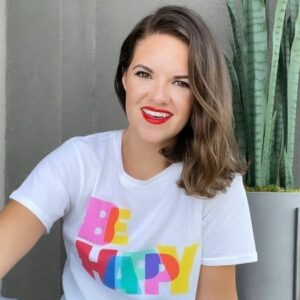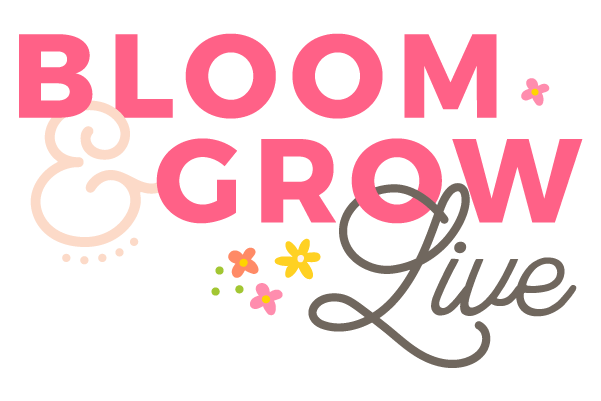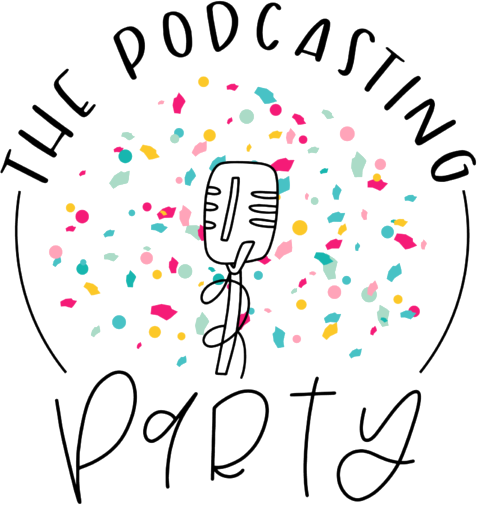
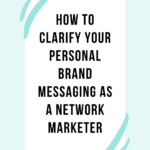
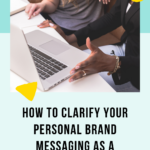
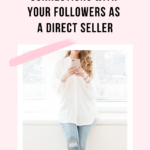
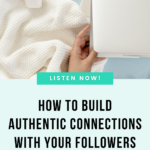



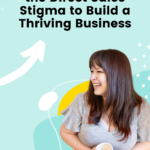
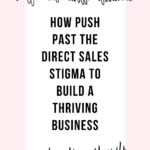
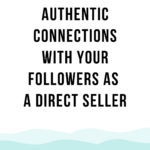
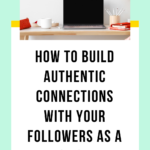
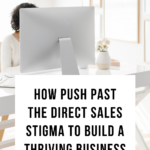
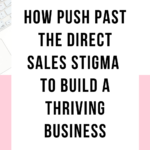
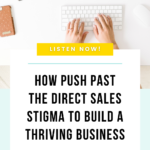

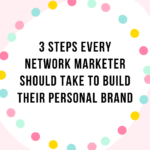

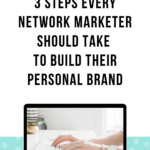

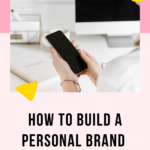




It can be easy to blend in with the thousands of consultants representing your direct sales company. But there’s one thing every successful network marketer has in common: they leveraged their personal brand to stand out in a crowded market.
Your personal brand is what sets you apart and makes your business about more than just selling a product and today my guest Shannon Parker is sharing her best tips for building a personal brand with your direct sales business.
Listen now!
Prefer to read, blog post style?
Episode Transcript
001. Your Voice Matters: Building a Personal Brand as a Direct Seller
Well hey there friends, welcome to our very first episode of the Build it Like a Business podcast! I’m so happy that you’re here and showing up for yourself and your business today! This episode is going to be powerful because it’s all about building that coveted personal brand. If you’re here right now, you’re most likely a direct seller which means that you sell product that another company makes and if you’ve been taught the same way most people have, you likely took on the identity of your company as your own using similar colors, their logo, and focusing primarily on showcasing their products on social media.
Today I want to show you a different way that you can build your business - a way that allows you to lead with your own unique voice - so that you can stand out in a market of people who are all doing some variation of the same thing online.
My goal today is to share more about what a personal brand really is (AND what it’s not), why it’s so important for long term, explosive success, and I’m going to give you 5 actionable steps that you can take today use to start intentionally building your own personal brand.
So first up what even IS a personal brand?
Most people immediately think of a logo and a color scheme. A brand needs a logo, right? And colors, and fonts. Maybe some social media post templates that all look the same and have your logo in the corner?
And while I totally understand why that’s the first thing you might think of when you think about what a brand is it’s actually pretty far down the totem pole. Having a logo, having a set color scheme… all of those things are nice and can help REPRESENT your brand. But they don’t define what a personal brand really is. So what’s the deal?
A personal brand is when your business is built around YOU instead of a specific product or service. This means allowing YOUR voice lead instead of your companies. Instead of your product. You’re more than just the product you sell, so don’t sell yourself short.
That’s not to say your products aren’t amazing or that you don’t love your company - but those are just a leg of your business, not the entire thing.
If you think of the solar system we have the sun and all the planets rotate around the sun, right? Well, in a personal brand YOU are the sun. Your products are just one of the planets. Your family is another planet, your hobbies are another. Maybe one day you decide you want to launch an online course - that would be another plant. The product you sell isn’t the star of the show… you are.
Now why is this important?
First and most simply, when you put your company first, you’re not giving people a reason to shop with YOU specifically. They could go directly to the company website, order from another consultant they meet on Facebook, etc. You’ve built a bond between them and the product, but not a bond between them and you. THat’s because you let the product take center stage instead of you.
Here’s an example of how a personal brand influences my business, Anchor Design Co.
So our best selling product is the AnchorCard Digital Business Cards because it allows our clients to simplify their business so they can save time and make moremoney.
And that’s great, and it’s super valuable, but it’s not what I personally bring to the table as the business owner.
What I personally bring to the table is my knowledge of marketing and proven success. What I personally bring to the table is the ability to break down big, confusing topics into small bite-sized pieces so that anyone can understand them.
See how these are separate? What happens is that people are attracted to one and are introduced to the other naturally and in a way that doesn’t feel pushy or salesy.
So someone might first be introduced to my company because they saw a training that I did and appreciated what I taught them about marketing. Maybe they even listened to this podcast episode! Their bond is with me as a marketer, a mentor, and a role model. The AnchorCard, as my product, is more like the icing on the case versus being the cake in and of itself.
The result of this is that even if I got rid of the AnchorCard tomorrow, the people that I built a bond with would still be here with me. We’d still have that relationship. However, anyone that I didn’t build a bond with would leave. They’d begin their search for a different product because they have no reason to stay connected with me.
And more importantly, if I got rid of the AnchorCard tomorrow… I’d still have something to offer. Because I build my business around me instead of my product - and I’m not going anywhere. I got really clear on what I personally bring to the table, not just what products I sell.
So if the product goes away… I still have me. And the same goes for you - if the product goes away, what is left? You might not know right now and that’s ok. But as you start to focus on building your personal brand you can figure that out.
Here’s an example:
Maybe you represent a company that sells bogs and bins and other similar products. Physically, the product is a bag. Or a tote or a bin of some kind.
But what unique thing do you personally bring to your business that adds value to your customer’s lives? That makes you different from any other rep? How do you, as a unique individual, provide value to your audience?
Maybe you focus on home organizing and helping your clients find ways to declutter, get organized, and develop systems within their own that make their lives easier. You would use your products to do this - the same way The Home Edit has a line of clear bins that they always use in their products. But you bring the knowledge of how to get organized. How to get a functional system in place.
Maybe you love serving other business owners to help them find storage and travel solutions for their products and inventory. Especially in direct sales if you’re hosting home parties you need to be able to tote your supplies around and you could be the expert on how to do that.
Maybe you specialize in working with teachers who are distant learning and need to find ways to organize their virtual, in-home classrooms. When they go back to school, maybe you help them find ways to make travel with their school supplies easier.
Those are just a few examples for one industry… now it’s your turn. Try thinking: Who uses my product? What is their job? What is their life like? And, who would you enjoy working with or helping?
By looking from a birds eye view and thinking about who uses your products you can start to narrow it down and consider which part of your potential audience you are able to serve in a unique way. This is called your niche: The specific, targeted, narrowed down group of people you specifically target to work with. There are literally billions of people in the world and if you try to target them all, no one is going to know if what you’re doing is really for them. But when you can get really specific about who you specialize in working with THAT is when you start seeing bigger results and when you actually start to stand out in a sea of people all doing the same thing as you. Because they won’t be any more…. You’ll be doing something different, something worth paying closer attention to.
So now you know what a personal brand is: It’s when you center your business around YOU instead of your PRODUCT or the company that makes your product.
And you know that by building a personal brand, centering your business around what you personally bring to the table instead of just the products you sell, you’re building stronger bonds with your customers and you’re creating loyalty.
Now I want to share a few actionable, specific steps that you can take to put your voice first and lead with your personal brand:
First, do an audit on your social media and remove your company from your social profiles. I know that’s not the easiest thing to do! You’re proud of your products and wear your company’s name like a badge of honor!
But this puts your product in the center, instead of you. And I think we’ve got a pretty good relationship going here, so I can be super honest with y’all… Direct sales has it’s own stigma. All industries do, don’t get me wrong, but in this particular case leading with your company instead of your personality can cause people to make assumptions and turn away before they ever even get to know what YOU are all about. They’re so used to the old-school way of direct sales and network marketing where it’s sell, sell, sell all the time. But that’s not what you’re all about. So by removing your company from your profile and focusing on what you personally can bring to the table you’re able to connect with people in a way that your company can’t.
So, that’s one step I’d encourage you to take.
Next: Instead of using your company in your Facebook page or group name, for example “Keleigh Lauermann, Beauty Consultant” or whatever your company equivalent is, just use your name.
Your page then becomes an extension of YOU, instead of a duplicate of your company’s page. They already have a page focused on product images, and so does every other consultant. This page is all about you and what YOU bring to the table.
By doing this you not only put the focus on you, but you open yourself up to be able to market your personal brand in a way that you can’t market your direct sales business.
Maybe one day you decide to create a course. Or write an e-book. If your business page is centered around you you can promote that - if it’s not, then now you’re starting from scratch.
You’re probably not going to do this right now, in fact I’d caution you NOT to unless you have a really clear strategy in place, but when your page is all about you as a personal brand instead of being a page about your direct sales product you’re able to do things like run lead generating Facebook ads and even promote other services that you might bring into your business.
And finally, the last action step I want to share with you today is to show your face! Everywhere you can!
Eye contact is one of the fastest ways to build trust - so put your face front and center and make eye contact with your audience. Especially online where people can’t hear our voices or see our body language like they would in person.
So, first and foremost, if you’re using anything but your beautiful face as your profile photo, it’s time for a makeover. Your photo doesn’t need to be perfect - it just needs to be authentically you. Just stand in front of a window with some decent light and snap a selfie.
Another way you can show your face is in your Facebook page and group banner. This is a good place to share your mission statement and a photo of you. It’s like you’re opportunity to tell people what you’re all about, how you serve them, and give them a face to put with a name.
Same on your other social profiles. Maybe you’re on Instagram or Twitter - whatever you use, make sure your profile is YOU. Take every opportunity to make eye contact with your audience.
Alright friends, there you have it- you now know that a personal brand is built when you put yourself front and center instead of your products.
You know that by doing so, you’re building loyalty and relationships.
And you have three actionable steps that you can take today to start leading with your unique voice to create a personal brand: Remove your company from your social media profiles, use your name instead of your company in your Facebook page and group titles, and show your face whenever possible on social media instead of a product.
I hope that this was helpful and that you feel empowered to dive into creating your personal brand and if you have any questions or want feedback I’d love to invite you to post in our Build it Like a Business Facebook group so that I and our incredible community of entrepreneurs can support you!
Alright, well thank you so much for joining me for my very first podcast episode - I’m so grateful to you for being here today and proud of you for taking the time to grow within your own business. If you enjoyed this episode I’d love to invite you to listen to the others that are available, subscribe to the show that way you can listen to our next episode when it comes out every week, and please share this show with a friend. And if this episode helped you gain clarity around your business or inspired you, it would mean the world to me if you’d take a second to leave a review.
I’m so excited to come back next week with more content for you, I have so many great topics coming up to help you grow your business intentionally and strategically so that you can truly build a business that lasts a lifetime. Thanks again for listing, I’ll see you next week, same time, same place. Bye for now!
LISTEN, SUBSCRIBE & REVIEW ON:
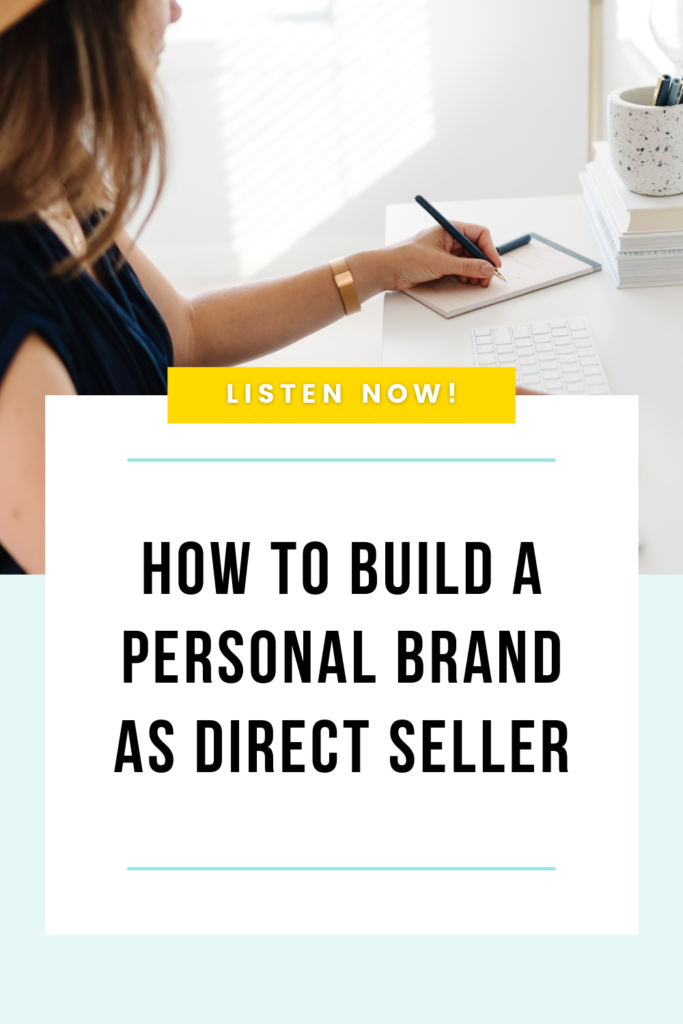
The Highlights:
Short & sweet episode highlights
Building a personal brand while representing a direct sales company
How to overcome the stigma of direct sales
How to clarify your brand messaging and why it’s so important
The #1 marketing tactic that is common in direct sales but Shannon avoids
3 Simple steps to take today to start building your personal brand
The Links:
Links mentioned in this episode
Connect with Keleigh on Instagram
Follow Anchor Design Co. on Facebook
Join the Build it Like a Business Community
Get a FREE AnchorCard Digital Business Card
Get done-for-you social media content
Follow Shannon on Instagram:
Visit Shannon’s Website
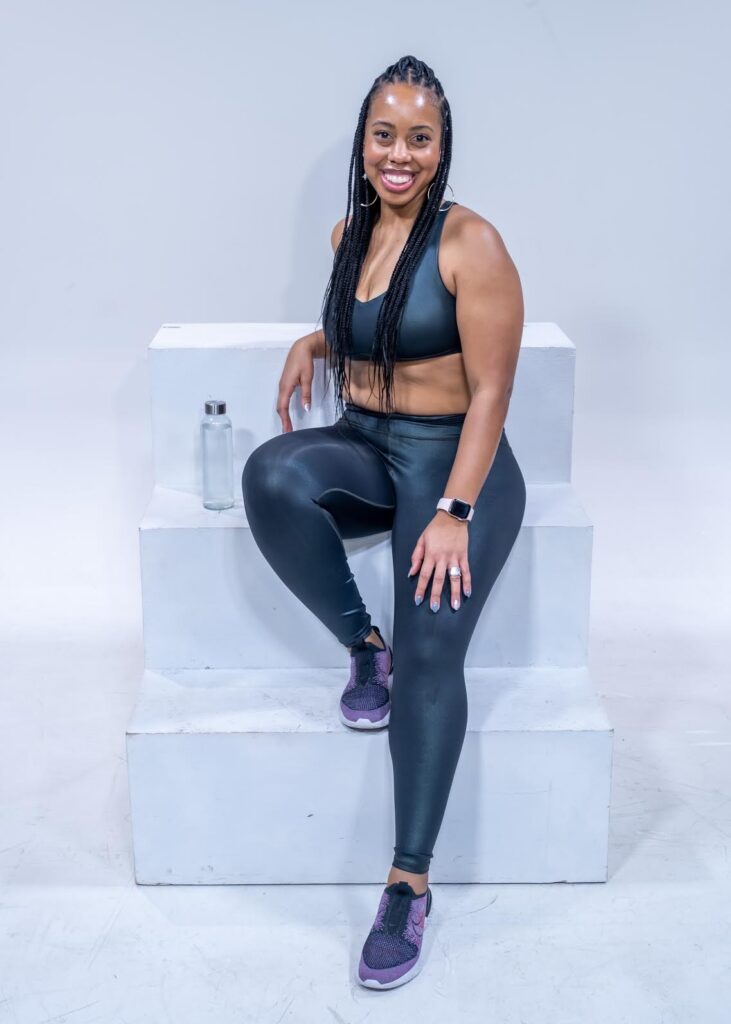
Meet Shannon Parker!
Shannon Parker helps women thrive in faith, food, and fitness. Shannon coaches women who want to feel their best, eat clean on the go, and do life with a Sisterhood. She offers vibrant wellness experiences, dynamic fitness accountability, and a deep dive online nutrition reset with her four weeks to Nourish program so that her clients can thrive from the inside out. Shannon’s drive to see women get healthier and happier has come out of navigating her own emotional and physical challenges with hypothyroidism, then Hashimoto’s within a span of two years-all while experiencing motherhood and leading executively.
Hashimoto’s is an autoimmune condition where the body attacks the thyroid. Through nourishing foods and lifestyle changes, Shannon figured out her own body’s unique triggers. She discovered that health is uniquely personal and absolutely tangible! Find inspiration, encouragement, and recipes at www.shannonparker.org and connect with Shannon right now on Instagram or Facebook @foreverfinesse
Looking for support?
Search for an answer in our recent episodes!


